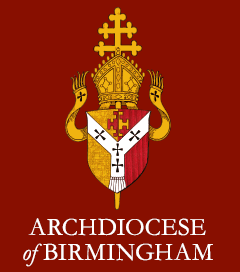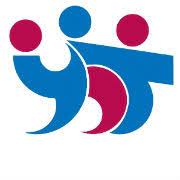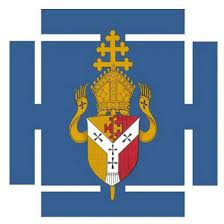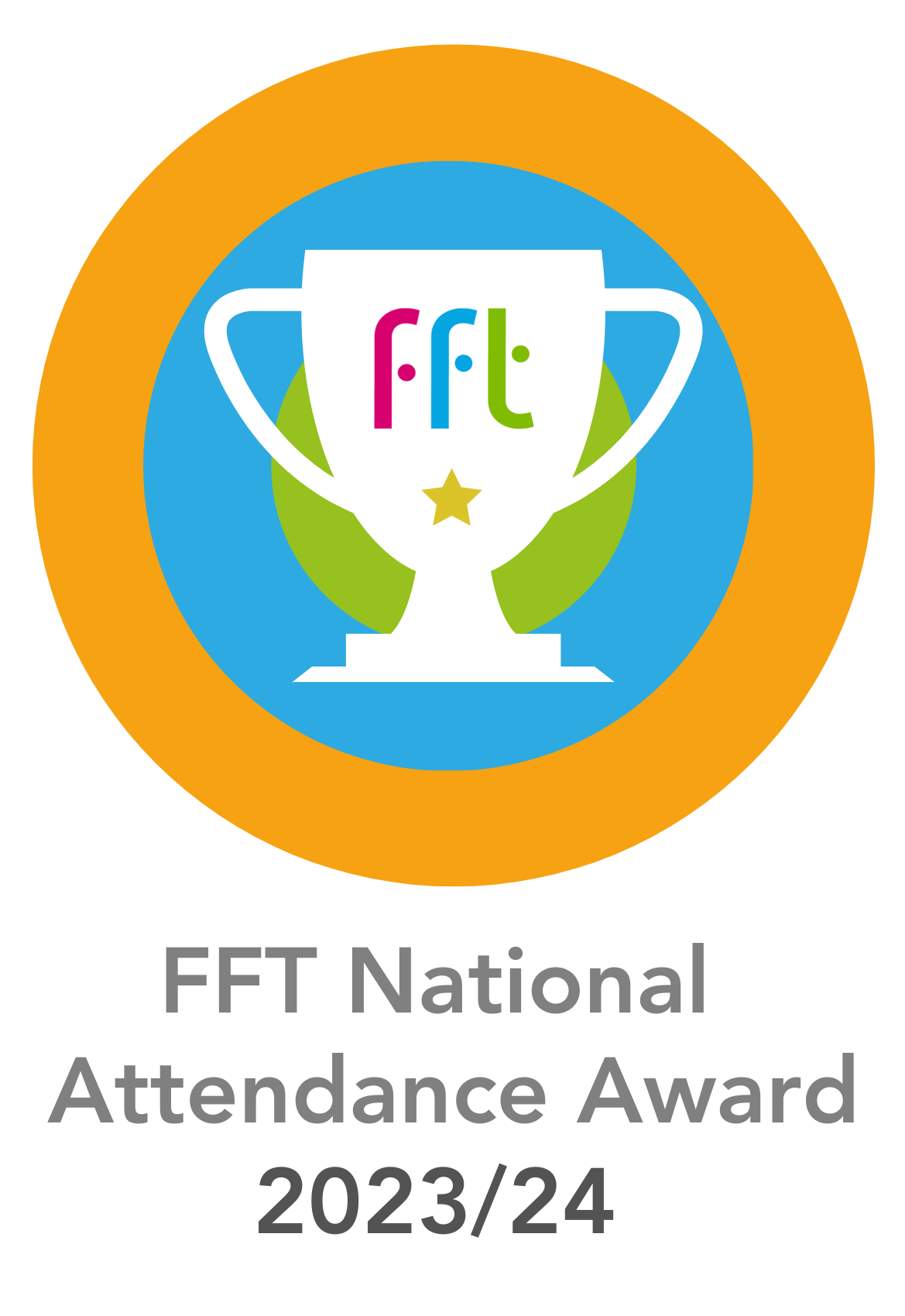RE
Introduction
The R. E. Department plays a key pastoral and academic role in the school. Religious Studies is an important part of the Catholic school's curriculum and is to be approached in an enthusiastic and challenging way which allows for individual expression and develops the knowledge and necessary skills for a mature Christian life. In so doing it also hopes to serve the needs of the wider Christian community and society at large.
In accordance with the school Mission Statement the R. E. department endeavours to tackle the dual aim of educating the individual in faith and promoting the individuals faith to the local Church community. This is done by the programme of study; the way in which we teach; the provision of opportunities for prayer and worship; the links with the local parochial communities in prayer, worship and pastoral activities; the forming of links with the local clergy; and the celebration of the sacraments, particularly Reconciliation and the Eucharist.
the department
The R.E. Department at BGN consists of five qualified teachers who are subject specialists and one teaching assistant who work together, sharing a common vision and faith, to achieve agreed objectives.
- We have a variety of gifts, talents, backgrounds and skills which we employ to the advantage of students and the department as a whole; students learn through a variety of teaching styles and are stimulated by the range of interests and breadth of experience each teacher brings to the subject.
- The department is well organised and runs smoothly. This is particularly in evidence in the preparation and celebration of whole school liturgical events; we all know what to do and what each other is doing, whether in or outside the classroom. Each member of the department is approachable and supportive of each other.
- Results at GCSE are good and above the national average. This is reflected in the numbers who take up the subject at AS and A Level. KS3 schemes of work have been revised with increased emphasis on: extended writing tasks; peer and self-assessment; and raising student awareness of their levels, targets and how to meet these targets. All members of the department were involved in this initiative, each developing a different part of the curriculum for the benefit of the whole team.
- Parents and pupils responded very positively in a recent survey, indicating that the pupils enjoyed the subject and parents were happy with their spiritual development and academic achievement. Members of the department report back regularly to parents through the planners and at parents’ evening, using rewards to praise progress and the school sanction systems when necessary.
- The department has strong links with the local parishes, the diocese and Oxford University. We are recognized by Oxford University as a valued training partner and we regularly receive students wishing to gain experience in an environment where religious education is held in high regard and taught to all students 11-18 years, whatever their background or ability.
Aims of the Department
- These aims of the R. E. Department relate directly to the Mission Statement.
- To educate the students in the knowledge and understanding of the R. C. faith
- To promote a knowledge and understanding of other faiths.
- To maintain and/or stimulate pupil curiosity, interest and enjoyment in Religious Education.
- To enable pupils: to be familiar with a body of religious knowledge, principles, skills and vocabulary; to see Religious Education in the context of a wider body of knowledge and skills; and to understand and use investigative/deductive methods.
- To contribute to the moral, social and ethical development of the pupils and to enable them to develop a range of desirable personal qualities such as prayerfulness, politeness, perseverance, respect, concern for others, initiative, independence and work independently, safely and as part of a team.
- To offer a course of study and employ teaching methods and resources that allow all pupils to have equal access to Religious Education and to experience success and enjoyment in their R. E. work.
- To develop an awareness in pupils of the implications of religion (past and present) for the individual, the community and the environment.
- To allow pupils to develop informed opinions and to be able to support them by reasonable arguments that recognise the possible limitations of the ideas and concepts used.
the curriculum
Religious Education is an important academic subject. The knowledge and understanding imparted here both develop the human potential of the individual, and the academic potential and qualification.
At the same time it is of fundamental importance in a Catholic school that it is one of the facilities/environments in which an individual's faith can be nurtured, strengthened and directed as a personal relationship with God and as a member of the Church community.
The department does not seek a compromise between these two different ideals, but the full pursuance of each in the formation of pupils in the school.
It is the policy of the department to enter students for public examinations suited to their abilities and aptitudes. The majority of pupils are entered for OCR GCSE Full Course, though some pupils may well be entered for OCR GCSE Short Course, or the Level 2 Extended Project.
In addition we offer A/S and A2 courses in Religious Studies - opting for the Philosophy, New Testament and Ethics modules with Edexcel. This is a popular subject. All students in the Sixth Form follow the Edexcel Extended Project which gives them a Level 3 qualification over 2 years
key stage 3
All students in Key Stage 3 follow The Way, The Truth and The Life series. In St John’s Gospel, Jesus calls each one of us individually and together, as Church, to live in him, who is the “Way, the Truth and the Life” (John 14:6).
Year 7
In ‘The Way’, students unfold the Sacred Scriptures and are invited to explore the beauty, call and promise of God revealing Himself in the Old Testament, and most fully in the New Testament in Jesus Christ. Students are encouraged to think in a deeper way and look for meanings that are not immediately obvious. The course of study enables students to explore new ways of thinking about the Church as the ‘People of God’ and as the ‘Body of Christ’; they discover the power of the sacraments and how to live out the help they offer.
Our world religion for this year is Hinduism. Students begin to deepen their understanding of other faiths and explore how to take initiatives to build bonds of friendship with other young people they will come to know.
Year 8
In ‘The Truth’, students begin by studying Creation, not so much scientifically as theologically, that is, as the unfolding of God’s plan for us and our world. Students reflect on the covenants God made with Noah, Abraham and in greater depth the covenant with Moses; students complete this section by understanding how Jesus is the New Covenant. The course becomes more challenging as students explore the mystery of the Eucharist and the mystery of Jesus’ passion, death and resurrection. In the following term, the focus is on the mission of the Church and the variety of ways people respond to God’s call to be co-workers with Him; students explore the ways in which they can use the gifts God has given them, not only to help others but also to support one another. Finally students study aspects of the Church in Britain, starting with the arrival of the early Christians and focusing on some of the momentous events which shaped the lives of many of our ancestors.
Our world religion for this year is Judaism.
Year 9
In ‘The Way’ students are invited to think deeply about what they believe, why they believe it and how it will help them in their journey through life. It starts with the spiritual quest, the search for God and explores not only the problem of suffering, but death, judgement, purgatory, heaven and hell. This leads on to a study of the Gospels: the life and teaching of Jesus as portrayed by each of the Evangelists with activities which relate to real-life issues. When Jesus ascended to his Father, he gave us his Spirit. Students have the opportunity to engage in an in-depth study of the gifts of the Spirit and the Sacrament of Confirmation. This leads on to the module on ‘God’s Call’ which provides an opportunity to reflect on a variety of vocations and ways of life, followed by another module on ‘Morality and Conscience’, which enables students to reflect on their actions and understand how to come to sound decisions.
Our world religion for this year is Islam. Students also study the broader topic of ‘Dialogue with Other Faiths’; only when we have a good understanding of our own faith can we, with confidence, share it with others.
key stage 4
There are currently 3 courses available in Religious Studies, all with the OCR Exam Board.
The OCR GCSE Short course is made up of TWO units
The OCR GCSE Full course is made up of FOUR units
The Level 2 Extended Project run by Edexcel consists of ONE unit.
Most Students will be entered for the GCSE Full course but some students might be entered for the GCSE Short Course and Level 2 Extended Project if this is more appropriate to their ability and needs.
THE GCSE SHORT COURSE offered by OCR has 2 units.
1. Roman Catholic Christianity (2)
Places and forms of worships.
Religion in the faith, community & family.
Sacred writings.
2. Ethics – Christianity and Medical Ethics
Christianity and Human Relationships
Christianity, Poverty and Wealth
THE GCSE FULL COURSE offered by OCR has 4 units.
1. As above
2. As above
3. Perspectives on World Issues
- War, Peace and Human Rights
- The Environment
- Prejudice, Equality and Discrimination
4. Christian Scriptures (1) (Mark’s Gospel)
- Jesus as Messiah
- Death and resurrection
- The Lord’s Supper/Eucharist
- Jesus as miracle worker
- the nature of miracles
- healings and exorcisms
- Jesus in conflict with authority
The GCSE syllabus is examined by means of either 2 exams for the short course or 4 exams for the full course. There is no coursework.
- The GCSE Full and Short courses are demanding. They challenge students and teacher to keep abreast of the Church’s teaching on social, sacramental and moral issues. Pupils are expected to have a thorough knowledge of all units covered and to bring their knowledge of scripture to bear when making judgments on topical issues of morality.
LEVEL 2 EXTENDED PROJECT offered by Edexcel has ONE Unit
This course is intended to cater for those students who may have difficulty in reaching Level 3 at the end of Year 9 and for whom the GCSE Full and Short Courses are not appropriate.
Students study one topic on a religious issue of their choice, eg: - Abortion, Marriage and Divorce, War.
SUPPORT MATERIALS With support, pupils will research the topic of their choice, set themselves deadlines, manage their project, summarise their research and answer a question they have set themselves as the focus of their project.
- Christian Perspectives by Libby Ahluwalia / Hodder Education £12.99
- Mark’s Gospel Booklet £1
- Roman Catholicism (OCR GCSE) by Maureen D Rebbitt. Simon Hughes by £12.99
- GCSE Bitesize BBC Active £4.99
- Mark’s Gospel: A New Approach by Michael Wilcockson £12.99 approx.
key stage 5
Year 12
This course comprises the study of three different areas:
- Philosophy of Religion
- Study of Religion: Christianity
- New Testament
Philosophy of Religion comprises a study of philosophical arguments about the existence of God, including the Cosmological, Design and Ontological Arguments as well as selected problems in the Philosophy of Religion, such as the Problem of Evil and Suffering.
For Christianity, students explore aspects of Christian Theology, including beliefs, values and teachings; sources of wisdom and authority; and practices which shape and express religious identity. Students have the opportunity to study crucial points in Church history, including The Early Church and The Reformation.
For New Testament, students take on an in depth study of its social, historical and religious context. They examine key issues in the Fourth Gospel and Luke’s Gospel, including The Synoptic Problem and questions of purpose and authorship.
Year 13
This year continues the study of the same three areas:
- Philosophy of Religion
- Study of Religion: Christianity
- New Testament
The Philosophy of Religion component focuses on the use of Religious Language and the debate between Science and Religion, including scientific cosmologies. Students will go on to investigate different religious views about Life after Death and begin an exploration of the works of Freud and Marx.
The Christianity module likewise explores the works of scholars, including Barth and Hick, as well as examining issues such as pluralism, diversity and secularisation. The course also takes in the study of new movements in Theology including Liberation theology, Feminist theology and Black Theology.
Finally, for the New Testament module, students consider the different ways scripture may be interpreted, Jesus’ conflict with the religious and political authorities, and questions surrounding Jesus’ resurrection.
The culmination of this two year course of study is assessment in the form of three exams of two hours each – one exam on each area of study.
Feedback Policy in the R.E. Department
In accordance with the School Mission Statement, and our belief in the dignity and value of the individual, the primary purpose of assessment will be to help the individual identify his/ her areas of achievement, and at the same time areas needing development. We do this in a variety of ways.
At Key Stage 3, teachers mark books regularly, giving formative comments at the end of a series of pieces of work which require a response from pupils for which they are accountable and awarding Good Referrals and House Points where appropriate. Some class work or homework tasks are assessed by means of peer or self-assessment. Key Stage 3 schemes of work include several opportunities for extended writing, research and presentation. There are clear level descriptors on formal assessments which allow teachers and pupils to identify levels of achievement. Pupils formally and regularly review their own learning on the ‘Review of Learning’ sheets, reflecting upon what they have enjoyed and done well, and how they can improve by utilizing and acting upon feedback given. Teachers constantly assess pupils' development and regularly give oral and written feedback to students, parents and heads of year.
At Key Stage 4, pupils work in A4 exercise books. Homework exercises, practice questions and end of module exams will be marked, but not class work as a general rule. Pupils are given a GCSE grade, a percentage or marks out of 1, 2, 3, 6 or 12, appropriate to the type of question. Clear level descriptors are given to pupils to help them understand what is required for 6 and 12 mark questions especially. Pupils review their learning regularly and are required to respond to feedback from the teacher. Parents are also invited to record their views.
At Key Stage 5, homework essays are set at the end of a topic. These are marked, graded and formative comments given. Pupils will then write an essay in timed conditions and this will be graded and commented upon either by the teacher or by peers. After every essay has been commented upon (by teachers or peers), pupils are required to respond to feedback and be accountable for it.
All assessments are used to help the teacher decide on the level or grade awarded to pupils on their reports.
Principles behind feedback
- Careful thought is given to the purpose of assessment, adopting a wider range of methods to reflect the Curriculum and learning opportunities.
- Assessment is an integral part of the teaching and learning process, a valuable formative and summative tool.
- The outcomes of assessment modify our teaching methods, provide feedback on the Schemes of Work as well as indicate pupil progress.
- We recognize the potential for assessment in developing a positive self-image in the pupil from positive and constructive feedback and the feeling of success which encourages further study.
- Teachers in the department use a common framework for marking work which is fully understood by all the team.
- Results of assessment are reported in a way useful for pupil, teacher, parents and other interested parties.
- Pupils and staff will discuss their marks on a formal and informal basis.
- Assessment has a common procedure and:
- Gives the teacher judgments which are as valid and reliable as possible, mutually consistent and consistent with both the School’s and the Exam Board’s standards.
- Gives teachers confidence in their professional judgment and skill
- Promotes a common interpretation of the examination levels.
- Is seen to be fair to pupils
- Assessment records:
- Are based on an agreed set of principles and purposes
- Assess pupil progress against the Exam Board’s and the School’s own criteria
- Are not administratively burdensome.
- Assessment records should provide mutual confidence in teachers between phases and enhance progression for pupils
Sex and Relationship Education
Sex and Relationship Education is founded on the Catholic understanding of the human person and an appreciation that authentic human love is more than sexual expression. The programme in school takes as its starting point the realisation that:
- every human life has an intrinsic and absolute value through being created by God and in the image of God;
- this value derives from the simple fact of existing and is not dependent upon an individual’s age, abilities, social acceptability or any other characteristic;
- self-respect and respect for each other must underlie all human relationships.
We follow the approved Diocesan Sex Education Programme “All That I Am” which addresses through Key Stages 3, 4, and 5 a variety of issues appropriate to the age range. The aim is to develop progressively the understanding and attitude of students, combining the biological, social, moral and religious aspects of sexuality and procreation.
The Vatican Council stated that parents are the ideal and chief instructors of their children, a role emphasised by Pope John Paul II in his Apostolic Exhortation “Familiaris Consortio”. This is the first point we emphasise. This being said, it remains true that parents and the family need all the help and support they can get. This programme sets out to give this necessary support.
The law requires that secondary schools teach sex education, human growth and reproduction including education about HIV and AIDS and other sexually transmitted infections as set out in the National Curriculum. It also requires that the Board of Directors and Principal ensure that any sex and relationship education is provided in a way that encourages students to consider the value of family life.
Thus, in Key Stage 3, “Where I Am” focuses on the features of healthy relationships, the students’ own experience of relationships, the teaching of the Catholic Church on marriage and the family, and media portrayals of love, lust, marriage and sex. In Key Stage 4, “How I Am” examines why people opt for certain life choices and how these choices can entail undesirable outcomes, such as sexually transmitted infections (STIs), HIV and abortion. Other issues are also discussed, including addictive behaviour such as eating disorders, alcohol and drug abuse; bereavement; contraception and the Catholic Church’s teaching on these issues. Students learn about homosexuality, examine why prejudice and discrimination is harmful, and learn to respect all people. In Key Stage 5, “Who I Am” aims to help students recognise the value and presence of an informed conscience. They learn about the moral teaching of the church on life and related issues, and reflect upon how this can conflict with values in daily life. Students are encouraged to apply the Church’s teaching, values and attitudes to their own moral stance and lifestyle and to review their patterns of behaviour regularly.
We hope that this approach to Sex Education encourages our young people to enter into a deeper relationship with God, themselves and others.





